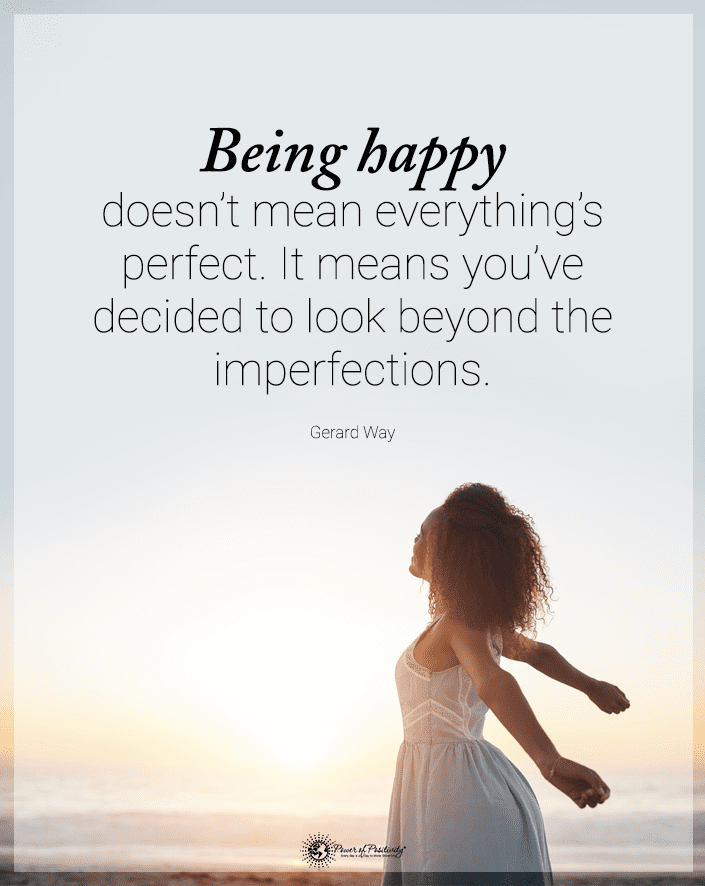Here’s why no couple is perfect.
Have you ever found yourself enchanted by the flawless romances portrayed in movies and novels, where couples effortlessly glide through life without a single argument or tear? This idyllic image of a perfect marriage is captivating. But it also sets a standard that real-life marriages rarely meet. The truth is that marriage, like any genuine human connection, is beautifully complex and inherently imperfect.
Today’s culture is saturated with social media highlights and cinematic love stories. It’s easy to fall into the trap of believing in a perfect marriage. These stories often gloss over the everyday challenges and the deep, sometimes difficult growth that true relationships require. However, counselors and relationship experts consistently emphasize that a perfect union, free of conflict and perpetual bliss, does not exist—and that’s perfectly okay.
Understanding why no marriage is perfect can be liberating. It allows couples to set more realistic expectations, work through challenges together, and appreciate the unique imperfections that make their relationship genuine.
Understanding Imperfection in Marriage

Two distinct individuals with backgrounds, thoughts, and emotions are at the core of any marriage. This blend of personalities is what makes each relationship unique but also introduces an array of challenges. No two people are perfectly aligned in all their habits, desires, and beliefs, and these differences can lead to misunderstandings and conflicts.
Marriage is not just about sharing joys and successes. Rather, it’s equally about managing disagreements and supporting each other through life’s inevitable lows. The imperfections in a relationship often arise from these very differences, acting as catalysts for personal growth and deeper understanding between partners. Rather than viewing these imperfections as flaws, they can be seen as opportunities to strengthen the bond through overcoming challenges.
Moreover, personal growth plays a significant role in how relationships evolve. As individuals grow and change, so does the dynamic of the marriage. What was once a perfect alignment might shift as both partners develop new interests, friendships, and perspectives on life. This evolution is natural and healthy but can introduce strains if not navigated thoughtfully.
Embracing these imperfections involves recognizing that change is a constant and communication is key. It’s important to discuss openly what each partner is experiencing and feeling. Being honest about changes and challenges doesn’t weaken a marriage; it builds trust and intimacy, laying a stronger foundation for the future.
Thus, the beauty of marriage lies not in its perfection but in its ability to adapt and thrive amidst imperfections. Couples can create a more realistic, fulfilling, and resilient relationship by understanding and accepting these aspects.
The Myth of the Perfect Marriage
The quest for a perfect marriage is unrealistic and can harm the relationship’s health. When couples set perfection as their benchmark, they set themselves up for disappointment and may overlook the genuine qualities that make their relationship special and enduring.
Understanding that there is no perfect marriage is liberating. It shifts the focus from trying to meet an unattainable standard to working on what is truly important—building a connection based on understanding, respect, and mutual support. This perspective encourages partners to accept each other’s flaws and vulnerabilities, integral to the human experience.
The myth of perfection can lead couples to ignore or gloss over issues that need attention. Problems are often swept under the rug rather than addressed head-on when the goal is to maintain an image of perfection. This avoidance can result in festering issues that become harder to solve.
Counselors often emphasize the importance of embracing imperfections within the marriage. They encourage couples to view challenges as opportunities for growth and strengthening the relationship. For example, an argument about financial decisions could lead to a deeper discussion about each partner’s values and priorities, enhancing mutual understanding.
Moreover, pursuing a perfect marriage can place undue pressure on both partners, leading to stress and dissatisfaction. Instead, embracing a realistic approach to marriage—acknowledging that there will be highs and lows and that both are part of the journey—can foster a more joyful and resilient relationship.
Letting go of the myth of perfection allows couples to appreciate their marriage for what it is: a complex, evolving, and deeply human partnership. It’s about finding joy in imperfections and celebrating each couple’s journey. This realistic approach enhances the relationship’s quality and enriches both partners’ lives.
Communication: The Heartbeat of Marriage
How you communicate your wants, needs, and desires to your partner and how they receive that, and vice versa, is the foundation of your relationship.” – Vijayeta Sinh, PhD
Effective communication is the cornerstone of any strong marriage. It is the vehicle through which partners express their needs, desires, and concerns and navigate the complexities of their shared life. However, even in the most harmonious marriages, communication can sometimes falter, leading to misunderstandings and resentment.
One common pitfall is assuming that our partner understands our thoughts and feelings without explicit communication. This assumption can lead to unmet expectations and frustrations. For instance, if one partner feels overwhelmed with responsibilities and needs more support, they must express this need clearly. Without such openness, the other partner may remain unaware of the issue, and tension can build silently.
Another challenge is how we communicate. Words said in anger or frustration can inflict deep wounds. Learning to express feelings calmly and respectfully is crucial, even during a disagreement. This includes active listening, where you truly hear and attempt to understand your partner’s perspective rather than planning your next rebuttal.
Moreover, effective communication isn’t just about talking; it’s also about creating an environment where both people feel safe to share their innermost feelings. This safety net does not develop overnight but is woven through daily interactions that build trust and respect.
Counselors often emphasize the importance of regular, intentional conversations about mundane and significant matters. These discussions can prevent minor issues from ballooning into major conflicts and keep the relationship aligned as both partners evolve and grow.
Conflict Resolution
Our partners don’t always have to think like we think. That’s what makes life interesting—it would be boring to be married to yourself. In fact, that’s called being single. – John Gottman
Conflict is a natural part of any marriage. Despite the best efforts of both partners, disagreements arise from differences in opinion, misunderstandings, and contrasting expectations. Recognizing that conflict is not a sign of a failing marriage but rather a normal aspect of any relationship is crucial. How couples manage these conflicts determines the strength and longevity of their marriage. Healthy conflict resolution involves several key strategies.
- First, it’s important to approach disagreements with the intent to resolve them rather than to win them. This mindset encourages collaboration and finding solutions that benefit both partners rather than focusing on defeating the other person.
- Second, timing can be everything when addressing conflicts. Choosing a moment when both partners are calm and not distracted by other stresses can lead to more productive discussions. It’s often advised to avoid tackling heavy topics late at night or before heading out to a stressful day at work.
- Third, using “I” statements can help reduce defensiveness in conversations. For example, saying, “I feel hurt when you ignore my calls,“ is less accusatory than saying, “You always ignore my calls.“ This approach focuses on expressing personal feelings and experiences rather than casting blame.
Knowing when to take a break during a heated argument can prevent conflict from escalating. Allowing time to cool off can help both partners return to the discussion with a clearer perspective and renewed patience.
Counselors also stress the importance of learning and growing from each conflict. This means resolving the immediate issue and understanding the underlying factors contributing to it. For instance, addressing broader topics such as financial planning and priorities may be beneficial if recurring arguments about spending habits arise.
Empathy and Understanding
Individuals are tied to one another by powerful, durable, reciprocal, multigenerational emotional attachments and loyalties that may fluctuate in intensity and psychological distance between members over time yet persist over the lifetime of the family. – Goldenberg, & Goldenberg, 2013
Empathy and understanding are essential ingredients in a healthy marriage. They allow partners to connect with each other’s emotions and experiences, fostering a deeper bond and a supportive environment. When both individuals in a marriage practice empathy, they create a relationship where both feel seen, heard, and valued.
Empathy means putting yourself in your partner’s shoes and understanding their feelings and perspectives without judgment. This does not necessarily mean agreeing with them but acknowledging their emotions as valid and significant. For instance, if one partner is upset about a canceled vacation, the other might not feel the same disappointment but can offer comfort and understanding.
On the other hand, understanding extends beyond immediate emotions to the broader context of your partner’s behavior and reactions. It involves recognizing the influences of past experiences, personal insecurities, and even day-to-day stresses that affect how they interact within the relationship. This deep level of understanding can help prevent conflicts and misunderstandings.
Practicing empathy and understanding also means asking questions and showing genuine interest in your partner’s well-being. This can be as simple as asking, “How did that make you feel?“ or “What can I do to help?“ Such questions provide insight into your partner’s inner world and demonstrate care and commitment.
Moreover, empathy and understanding are particularly crucial during conflicts. They can diffuse tension and lead to resolutions that respect both partners’ needs. When each person feels that their emotions and perspectives are considered, compromise becomes easier and more meaningful.

Final Thoughts on Letting Go of the False Reality of the Perfect Marriage
Embracing the reality that no perfect marriage allows couples to focus on what truly matters—growing together throughout their lives. By recognizing and accepting the inevitable imperfections and challenges, partners can build a stronger, more resilient relationship. The beauty of marriage lies not in achieving perfection but in navigating life’s journey together, with all its ups and downs, and cherishing the unique connection you share. Let this understanding guide you as you foster a loving and lasting partnership.
The post Counselors Explain Why There’s No Perfect Marriage appeared first on Power of Positivity: Positive Thinking & Attitude.






